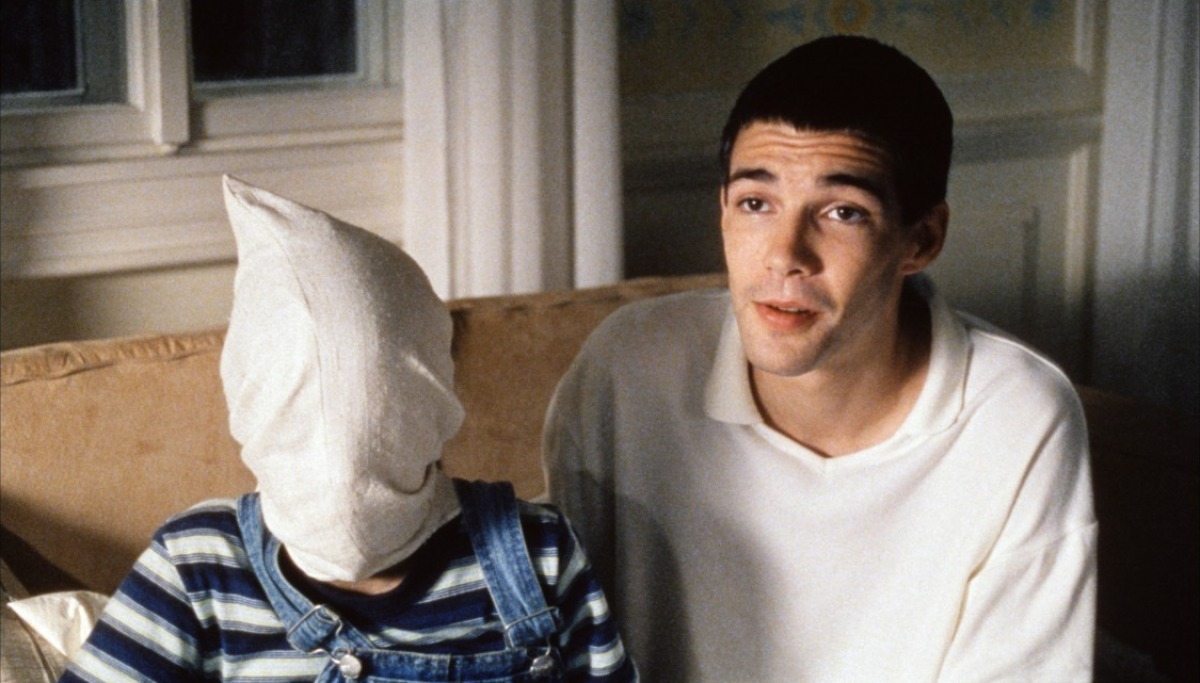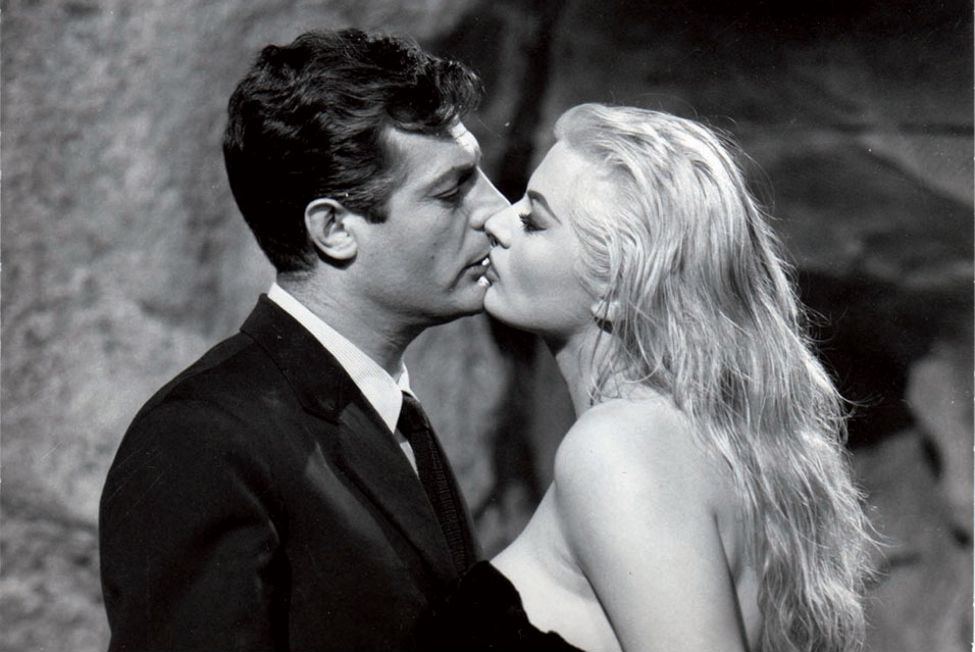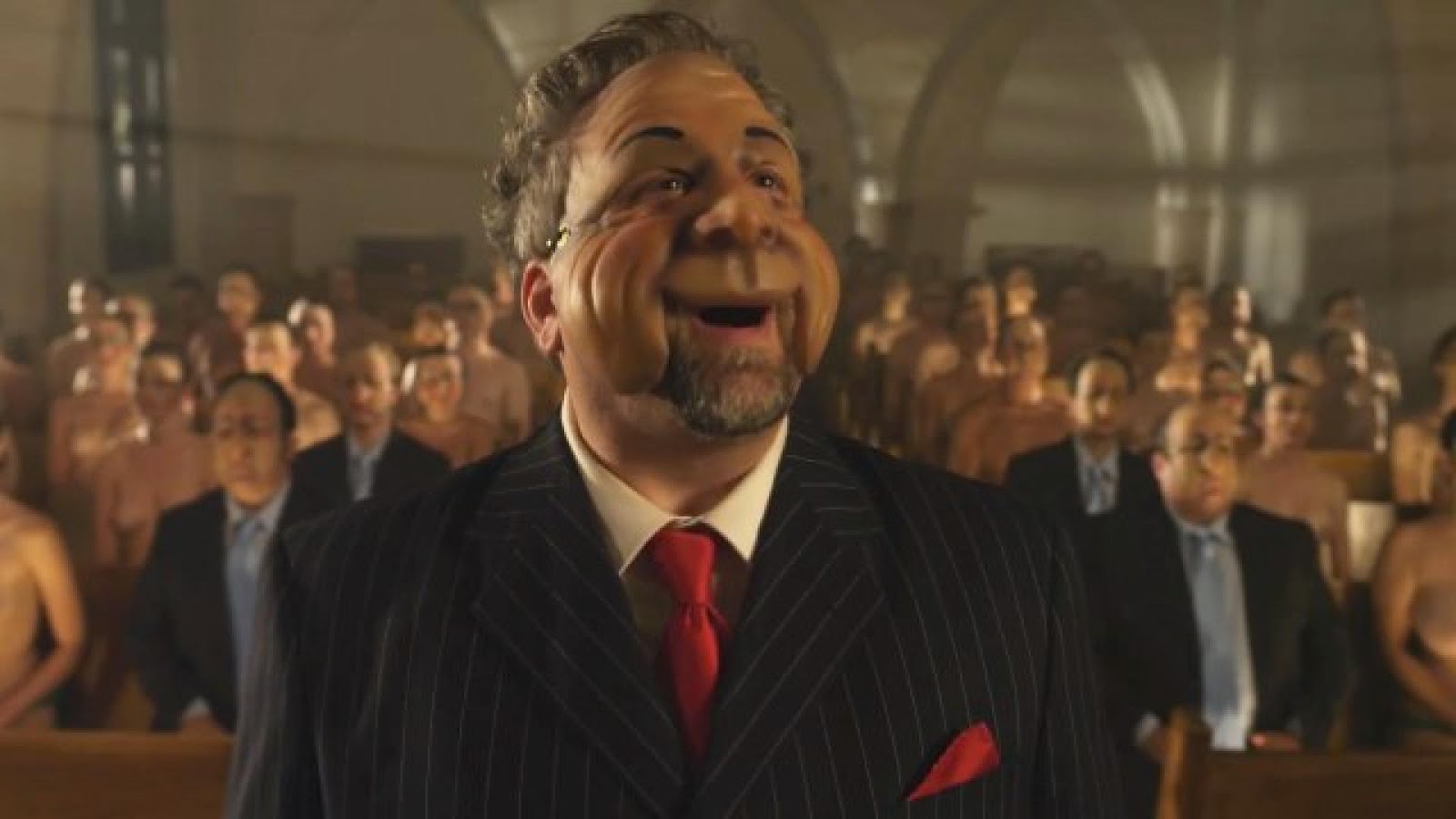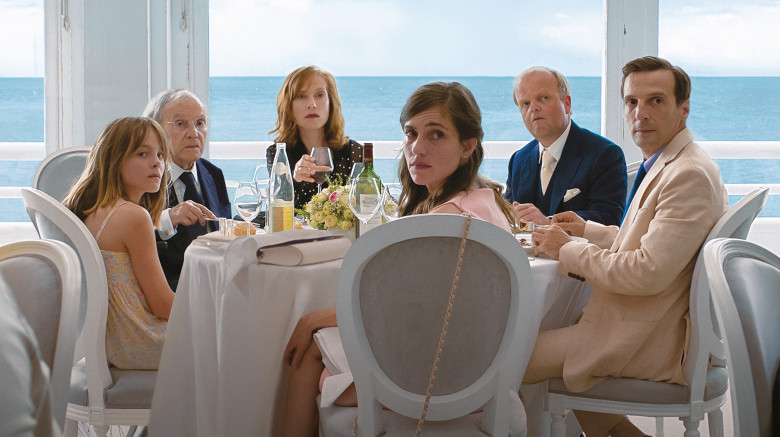
Irony explains a certain way of expressing the opposite of what you mean. It can be humorous and understated, but in the end it only works if the recipient realizes and understands its existence.
In this case the focus will therefore be put on films that achieved irony through the use of a title that stands in contrast to the film’s actual content and mood, which the audience will catch at some point while watching the film.
In other words, the films chosen for this list in no way need to be driven by irony or ironic themes throughout the film – it’s merely the use of an ironic title that’s in focus.
1. Funny Games (1997)

“Funny Games” was written and directed by Austrian filmmaker Michael Haneke and garnered much attention – both praise and resentment – when it came out in 1997, as well as when its American remake from 2007, also by Haneke, came out.
It could be argued that many of the strong immediate reactions and outrage the film(s) were met with comes from its quite subverted but nonetheless still uncomfortable take on the slasher movie genre, as the plot revolves around two young men, Peter and Paul, who impose themselves on a wholesome Austrian family on holiday.
Peter and Paul start playing ‘funny’ torture games with the family, and this is where the irony of the title comes into play. For there is nothing less amusing to the family or the audience than the extremities the two sadistic men force the family to play along with.
Although obviously funny to Peter and Paul, the use of sounds and camera angles during the long scenes of one uncomfortable ‘game’ after another only underline the ironic use of the word ‘funny’ in the title.
2. La Dolce Vita (The Sweet Life, 1960)

One of Italian director Federico Fellini’s most acclaimed films, “La Dolce Vita” has a title that suggests to its audience that it’ll give a look into the wonderful and sweet life of its main character Marcello. However, it turns out that the life of journalist paparazzo Marcello isn’t quite as attractive and exclusive as first expected, or at least the exclusiveness that is present isn’t as grand as it looks.
Much like other films of Fellini’s, such as “8½,” the film is episodic and fragmented, as it runs through one party and hangover after the other, but also explores social relations that never seem to really pan out the way one would have wished.
In the end, the film portrays the empty repetitiveness of the glamorous life with Hollywood starlets, excess living, and no truly lasting relationships or satisfactions. The type of life that surely would be described as sweet at first glance, but altogether isn’t that sweet at all.
3. Goodfellas (1990)

“Goodfellas” is a realistic mobster film that showcases the life of a group of Italian-American men in the 60’s and 70’s New York. Henry Hill, who is brought up in this world of violence and gangsters, is at the centre of the story.
He and his ‘friends’ seem to see themselves as the smartest people they know, and they pride themselves on being intimidating and good at running businesses, and therefore they would have no qualms in calling themselves ”good fellas.” And they do look cool: they have power, they are dangerous, they are wisecracking, and they are indeed intimidating. It’s therefore alluring for many audiences to see these guys with all their action and guns as types of role models, and if not exactly role models, then at least cool characters.
But the coolness is a façade, for underneath the surface – and this really isn’t a very deep surface – these men spend their days carelessly killing whoever gets in their way, cheating on their wives, hijacking planes, and generally breaking the laws for the good of themselves and their own egoistic lifestyles.
Director Martin Scorsese doesn’t glorify the lives of these mobster men, but instead critiques them by showing, beneath all the fast pace and quick remarks, men who really aren’t very good fellas.
4. John Dies at the End (2012)

There’s certain playfulness to this title, seeing as it would evoke a strong response no matter what happens in the end. Either it would be a major spoiler for the whole film as John does die, or, as it turns out, the character of John Cheese doesn’t actually die at the end, and so the irony comes in to play.
John, a college dropout who suddenly has to become a hero when a weird and dangerous drug is introduced to the world, survives through the whole film. Instead John’s friend, David, dies at the end, and so director Don Coscarelli effectively tricks his audience by the use of the title.
Now whether John was meant to die all along when David Wong originally wrote the book, which the film is based on, or whether it was meant to be a joke all along, the mischievousness of the title is enigmatic and interesting, and it definitely suits the whole vibe of the film.
5. Happy End (2017)

Writer-director Michael Haneke turns up with another entry on this list, and this time it’s his latest film “Happy End.” In this film, as he has done with a few of his other works, Haneke studies and critiques people and families with bourgeois lifestyles, and dives deep down into their perversions and discomforts that lie underneath the surface. If you know Haneke’s previous work going into this film, it would therefore not come as a huge surprise that “Happy End,” which follows an upper-class French family, has some irony in its title.
In 2012, Haneke’s film “Amour” garnered lots of praise, and for many, “Happy End” feels like a sort of continuation of this film, seeing as a couple of characters seem to reappear. However, Haneke has been known to reuse both actors and the names Anne and Georges for characters in different films (i.e. “Caché”), and the film therefore can be seen on its own. However, the character of Georges, who is played brilliantly by Jean-Louis Trintignant (which he also does in “Amour”) is a character the audience can recognize from before.
Maybe, because of this, he sort of feels like the heart of the film, and he is also probably the only character in the film that seems to find some kind of ‘happiness’ by the end of the film, as he is wheeled out into the ocean by Eve. The fact that this is the hope of an actual happy ending says quite a lot about the rest of the family’s lives and the irony of the title.